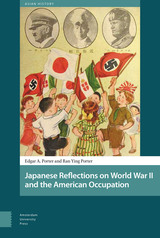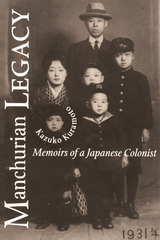
Presented with accounts of genocide and torture, we ask how people could bring themselves to commit such horrendous acts. A searching meditation on our all-too-human capacity for inhumanity, Evil Men confronts atrocity head-on—how it looks and feels, what motivates it, how it can be stopped.
Drawing on firsthand interviews with convicted war criminals from the Second Sino-Japanese War (1937–1945), James Dawes leads us into the frightening territory where soldiers perpetrated some of the worst crimes imaginable: murder, torture, rape, medical experimentation on living subjects. Transcending conventional reporting and commentary, Dawes’s narrative weaves together unforgettable segments from the interviews with consideration of the troubling issues they raise. Telling the personal story of his journey to Japan, Dawes also lays bare the cultural misunderstandings and ethical compromises that at times called the legitimacy of his entire project into question. For this book is not just about the things war criminals do. It is about what it is like, and what it means, to befriend them.
Do our stories of evil deeds make a difference? Can we depict atrocity without sensational curiosity? Anguished and unflinchingly honest, as eloquent as it is raw and painful, Evil Men asks hard questions about the most disturbing capabilities human beings possess, and acknowledges that these questions may have no comforting answers.


Kazuko Kuramoto was born and raised in Dairen, Manchuria, in 1927, at the peak of Japanese expansionism in Asia. Dairen and the neighboring Port Arthur were important colonial outposts on the Liaotung Peninsula; the train lines established by Russia and taken over by the Japanese, ended there. When Kuramoto's grandfather arrived in Dairen as a member of the Japanese police force shortly after the end of the Russo-Japanese War in 1905, the family's belief in Japanese supremacy and its "divine" mission to "save" Asia from Western imperialists was firmly in place. As a third-generation colonist, the seventeen-year-old Kuramoto readily joined the Red Cross Nurse Corps in 1944 to aid in the war effort and in her country's sacred cause. A year later, her family listened to the emperor's radio broadcast ". . . we shall have to endure the unendurable, to suffer the insufferable." Japan surrendered unconditionally.
Manchurian Legacy is the story of the family's life in Dairen, their survival as a forgotten people during the battle to reclaim Manchuria waged by Russia, Nationalist China, and Communist China, and their subsequent repatriation to a devastated Japan. Kuramoto describes a culture based on the unthinking oppression of the colonized by the colonizer. And, because Manchuria was, in essence, a Japanese frontier, her family lived a freer and more luxurious life than they would have in Japan—one relatively unscathed by the war until after the surrender.
As a commentator Kuramoto explores her culture both from the inside, subjectively, and from the outside, objectively. Her memoirs describe her coming of age in a colonial society, her family's experiences in war-torn Manchuria, and her "homecoming" to Japan—where she had never been—just as Japan is engaged in its own cultural upheaval.
READERS
Browse our collection.
PUBLISHERS
See BiblioVault's publisher services.
STUDENT SERVICES
Files for college accessibility offices.
UChicago Accessibility Resources
home | accessibility | search | about | contact us
BiblioVault ® 2001 - 2024
The University of Chicago Press









